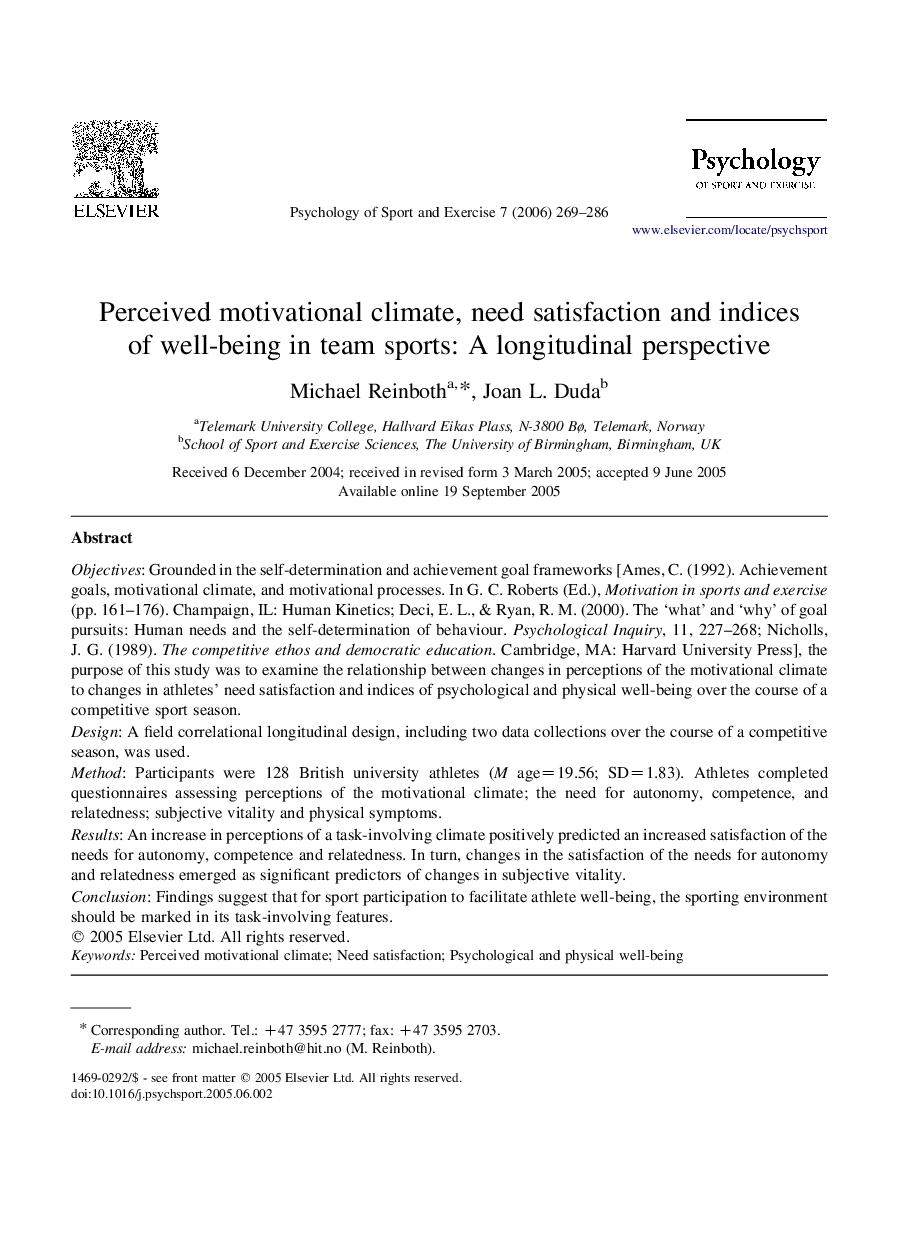| Article ID | Journal | Published Year | Pages | File Type |
|---|---|---|---|---|
| 895042 | Psychology of Sport and Exercise | 2006 | 18 Pages |
ObjectivesGrounded in the self-determination and achievement goal frameworks [Ames, C. (1992). Achievement goals, motivational climate, and motivational processes. In G. C. Roberts (Ed.), Motivation in sports and exercise (pp. 161–176). Champaign, IL: Human Kinetics; Deci, E. L., & Ryan, R. M. (2000). The ‘what’ and ‘why’ of goal pursuits: Human needs and the self-determination of behaviour. Psychological Inquiry, 11, 227–268; Nicholls, J. G. (1989). The competitive ethos and democratic education. Cambridge, MA: Harvard University Press], the purpose of this study was to examine the relationship between changes in perceptions of the motivational climate to changes in athletes' need satisfaction and indices of psychological and physical well-being over the course of a competitive sport season.DesignA field correlational longitudinal design, including two data collections over the course of a competitive season, was used.MethodParticipants were 128 British university athletes (M age=19.56; SD=1.83). Athletes completed questionnaires assessing perceptions of the motivational climate; the need for autonomy, competence, and relatedness; subjective vitality and physical symptoms.ResultsAn increase in perceptions of a task-involving climate positively predicted an increased satisfaction of the needs for autonomy, competence and relatedness. In turn, changes in the satisfaction of the needs for autonomy and relatedness emerged as significant predictors of changes in subjective vitality.ConclusionFindings suggest that for sport participation to facilitate athlete well-being, the sporting environment should be marked in its task-involving features.
